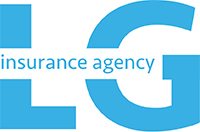Property cost evaluation determines the true worth of your property. This is very important for insurance purposes. Otherwise, you could be under or over-insured.
Under-insuring your property can lead to a significant financial loss if you ever need to file a major claim. Over-insuring means you pay more for insurance than you should.
Aren’t Price & Value the Same Thing?
Many factors affect value, and it doesn’t always translate to the price. For instance, someone who wants to sell their property quickly to improve their cash flow might price it lower just to prompt a quick sale. That doesn’t change the fact it is actually worth more.
For a property to have value in the marketplace, it must possess four characteristics: demand, utility, scarcity, and transferability.
Demand is a need or desire by buyers for what you own. Utility is the suitability of your property to fulfill that need or desire. Scarcity describes when there aren’t enough properties are on the market to fulfill buyer’s needs. Transferability describes the ease of exchanging the value of your property to another party.
Factors that can affect value include legislative changes (tax & zoning laws), economic changes (GDP, unemployment, and growth), interest rate fluctuations, infrastructure alterations, and increased environmental risk (flooding, hurricanes, etc.), just to name a few.
Basing your insurance needs on price doesn’t account for the many factors that can affect value.
Cost Evaluation Methods
Determining an accurate value is very important for insurance purposes, because it determines coverage levels and premiums. The three methods generally used for evaluation include:
Replacement Cost – the evaluator determines the costs involved in the reconstruction of the property including materials, depreciation, and labor.
Sales Comparison – the evaluator compares recently sold properties of similar size, age, construction technique, and location to determine an accurate value.
Income Capitalization – the evaluator calculates the value based on the potential income of the property. This is generally used for investment properties.
Why an Evaluation, Not an Appraisal?
An evaluation involves more than a cursory inspection. Evaluators examine many additional factors and this provides a more accurate estimate of the value of the property. These can include zoning records, demographics, rentals, income, taxes, replacement costs, and more.
Residential property cost evaluations usually cost less than a full appraisal. Commercial evaluations are also less costly and ideal when a business needs a loan of $250,000 or less or they’re using the property as collateral for a business loan under $1 million.
What Are the Benefits?
Qualified agents can perform commercial evaluations, so they easily accessible. Their findings also meet the standards and regulations in all states. They’re also checked by the Commercial Quality Assurance Analyst to confirm the agent’s evaluation.
A local, independent insurance agency like ours can tailor your insurance coverage to the evaluation so you’re properly protected and don’t pay more than need be. Since property cost evaluations are affordable and easily obtained, it could reduce premiums and risk.


